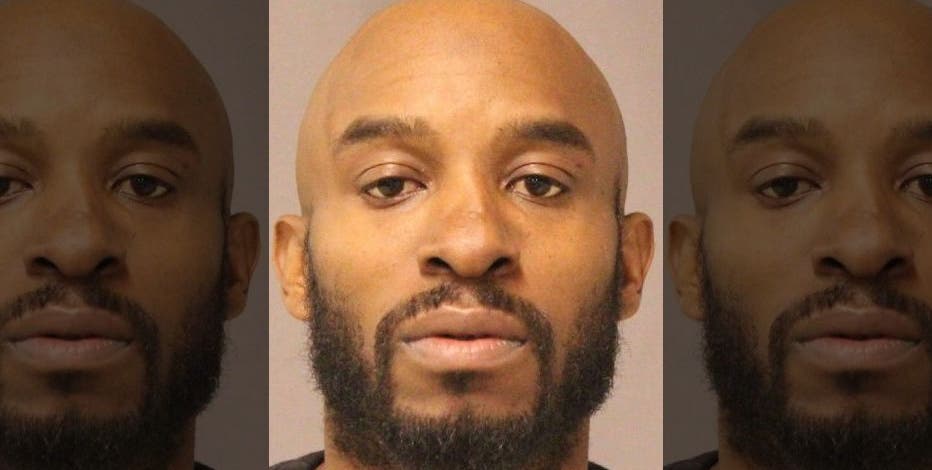
DETROIT (FOX 2) - Kenyel Brown, the murder spree suspect who police say killed 6 people in the past month, had been kept out of jail by the Department of Justice, despite violating probation multiple times - according to court documents.
Brown has a detailed criminal history that dates back to the late 1990s that led to plea deals and dismissals for several crimes including second-degree homicide and weapons charges.
According to court records, Brown was first arrested in August 1997 for carrying a concealed weapon and assault with a dangerous weapon. He served a year in the Wayne County Jail and was released in 1998.
This browser does not support the Video element.
Kenyel Brown’s history as federal informant surfaces
Kenyel Brown is accused of killing 6 people and, according to authorities, he was a federal informant for the past few months leading up the alleged rampage.
In March 1999, he was arrested again for running from police and carrying a concealed weapon. The weapon charge was dismissed and he was sentenced to 4 years probation for running from police.
In October that same year, he was arrested again for possession of a Taser and trying to sell a Taser. He was later sentenced to 4 years probation after pleading guilty to trying to sell the Taser, the possession of the weapon charge was dismissed.
In February 2001, he was arrested for delivery/manufacture of narcotics but again, the charges were dismissed.
In September 2000, he was arrested following a police chase where a person died. He was charged with second-degree homicide, two counts of running from police, driving without a license causing death, driving and causing serious injury, carrying a concealed weapon, and two felony weapon charges.
The homicide charge in that police chase was dropped. He pleaded guilty in 2001 to two counts of fleeing police.
In February 2001, he was arrested for delivery/manufacture of narcotics but again, the charges were dismissed.
For the next 13 years, Brown did not have any convictions or arrests, according to Michigan court documents. That changed in June 2014 when he was arrested on gun charges. The state charges were all dismissed when the case was moved into federal court.
He was sentenced to federal prison for 15-21 months in July 2014.
According to court documents, in March 2015, Brown entered into an agreement with the ATF to become a federal informant. He was later released from prison after serving 15 months.
Court documents show that Brown provided information about his crimes and knowledge about others he believed were involved in criminal activity where he lived.
Now, in February 2020, Brown is believed to be connected to at least six different homicides and has been charged with two of them in River Rouge. Police began searching for him Feb. 6 and the U.S. Marshals put out a reward for information that led to his arrest.
RELATED: Search for Kenyel Brown, man wanted in 6 homicides
Brown's violent streak was amplified after police found a man beaten to death in Highland Park on Feb. 18. Another man was killed two days after that in a Detroit business. Then, two more people were killed in Detroit.
On Monday, Brown was spotted in Oak Park and police chased him into a backyard of a Detroit home where he shot himself in the head. He's in extreme critical condition in a Detroit area hospital.
In a press conference on Wednesday, Detroit Police Chief James Craig detailed Brown's history and said that the ATF had transferred Brown to the Detroit Police Department and DEA joint task force. Craig said that, as a condition of his release, he was under probation while a federal informant but failed drug tests, was arrested for drunk driving, and violated his probation multiple times.
Craig said Brown's background of violating his parole was never detailed to the task force.
Craig also said that he's consulted with the U.S. Attorney to investigate how Brown's actions were not communicated to the task force more accurately.
RELATED: Man wanted by U.S. Marshals for River Rouge murders is also person of interest in new Detroit murder
United States Attorney Matthew Schneider released this statement regarding Kenyel Brown.
"This is a horrible tragedy. We are going to do everything in our power to get to the bottom of this matter. Kenyel Brown was a law enforcement informant for a period of time, and we have been — and currently are — working closely with our law enforcement partners to determine exactly what happened.It’s also our obligation to act as transparently as we can, in a responsible manner, by obtaining the facts. The families of the victims deserve nothing less."
